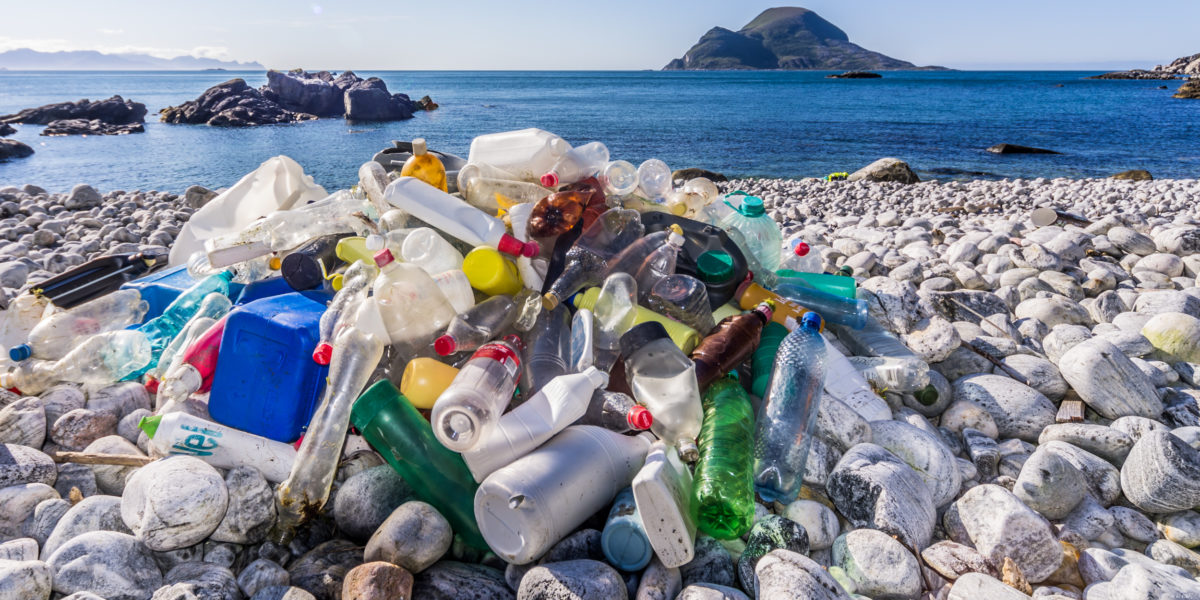The Canadian government is moving forward with its plan to ban single-use plastics by the end of the year with a complete phase out by the second half of the decade.
The move will see plastic grocery bags, cutlery, ring carriers, styrofoam takeout containers, stir sticks, and most straws prohibited from being manufactured or imported into Canada by December. Businesses won’t be prohibited from distributing their existing stock of single-use plastics until Dec. 2023. By the end of 2025, the export of these plastics will also be banned.
The final plan was announced last week by Minister of Environment and Climate Change Steven Guilbeault and Minister of Health Jean-Yves Duclos.
According to the federal government, the ban will get rid of the equivalent of more than one million garbage bags—or 1.3 million tonnes—of plastic that only gets used once before taking hundreds of years to break down. That includes up to 15 billion plastic checkout bags each year and roughly 16 million plastic straws every day in Canada.
The ban won’t get rid of plastic straws completely as many people in Canada require them for medical or accessibility reasons. But aside from those exceptions, they’re soon to be prohibited.
As far as ring carriers and juice boxes with plastic straws go, the manufacturing and importing of these items will become prohibited in June 2023, while the sale of them becomes illegal in June 2024.
The federal government believes the prohibition of single-use plastics could create about 42,000 jobs by 2030, while reducing carbon emissions by nearly two megatonnes each year.
“We promised Canadians we would deliver a ban on single-use plastics,” Guilbeault said in a press release announcing the legislation. “With these new regulations, we’re taking a historic step forward in reducing plastic pollution, and keeping our communities and the places we love clean.”
A small step forward
Responding to the bill, NDP Environment and Climate Change critic Laurel Collins criticized the federal government for failing to ban single-use plastics sooner, as the party promised in 2019 the ban would be in effect by the end of 2021.
“To make matters even worse, the proposal for the ban only includes six single-use plastic items, which is less than one per cent of plastics,” she said in a statement. “That means some of the most commonly found garbage on our beaches and in our oceans, like coffee cups, cigarette butts, and produce bags will not be included in the ban.”
Collins noted that the Liberals have failed to implement a real plan “to keep our oceans plastic-free,” adding that it’s been four years since the House of Commons called for a national strategy on reducing plastic pollution.
“Canadians want urgent action on reducing plastics, not two years from now,” she said. “People have been waiting; they don’t want an environmental plan that fails to stop plastic pollution on our beaches, oceans and rivers.”
For Greenpeace Canada’s Head of Oceans and Plastics campaign, Sarah King, the move is “a critical step forward.” Unfortunately, she added, “we still aren’t even at the starting line.”
King’s response came hours after the announcement of the ban in a press release that noted the legislation would cover less than five per cent of Canada’s plastic waste generated in 2019.
“The government needs to shift into high gear by expanding the ban list and cutting overall plastic production,” King said. “Relying on recycling for the other 95 per cent is a denial of the scope of the crisis.”
While the environmental organization initially applauded the federal government’s commitment to ban these plastics back in 2020, King concluded that “things have worsened so much that this moment feels more desperate than congratulatory.”
Long-time Canadian climate activist David Suzuki was cautiously optimistic about the ban.
“Just as we must stop using fossil fuels, we must also move away from their plastic byproducts. Canada’s ban is a good start, but we need to go further, and faster,” Suzuki wrote in a recent column. “It’s one area where our personal choices can make a big difference. New government standards make that easier. There’s no future in plastics.”
While the jury is still out as far as Greenpeace is concerned, independent charity Oceana Canada is calling the ban a victory.
“[This] announcement ensures that Canada is embarking on a true transition away from unnecessary single-use plastics; this victory means that billions of plastic items each year that otherwise could have threatened sea life like whales and turtles will no longer be adding to the global plastic disaster,” Plastics Campaigner at Oceana Canada Anthony Merante said in a June 20 press release. Merante added that the charity will continue working to add more unnecessary single-use plastics to the prohibited list.
Oceana Canada began their campaign back in 2019, garnering more than 160,000 signatures on a petition to ban single-use plastics. Their mission statement is to restore Canadian oceans “to be as rich, healthy, and abundant as they once were.”
As the organization notes on their website, humans consume about one credit card worth of plastic each week. The 2019 study, commissioned by the World Wide Fund for Nature (former known as the World Wildlife Fund, or WWF) concluded that humans are ingesting an average of 250 grams of microplastics every year. Around the world, the production of plastic continues to grow, doubling from 2000 and on track to quadruple by 2050.



